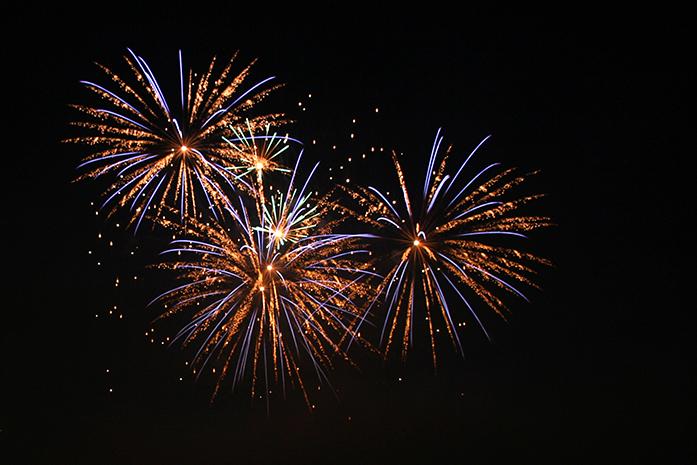By Sarah Stortz
By the Fourth of July, Iowans may no longer have to travel to neighboring states to purchase fireworks.
A bill that would legalize buying and selling consumer fireworks in Iowa was passed by the Iowa Senate in March, despite mixed views from the fireworks community.The legislation, known as Senate File 489, passed 34-14 after it cleared the Iowa Senate State Government Committee. It specified that consumer fireworks would be legal to buy from June 1 to July 8 and Dec. 10 to Jan. 3.
The legislation was favorable among Iowa residents. According to a poll in a Feb. 23 article in the Des Moines Register, 65 percent were in favor of legalizing fireworks.
Aaron Zambo, the president of Uncle Sam’s Fireworks in Illinois and Indiana, said he can see great benefits from the Iowa Senate making the move.
“I would say that a large benefit would be the increased tax revenues provided by the legalization of fireworks,” he said. “We have customers who travel from other states, including Iowa, that come to our store near Chicago. To some extent, if people want fireworks, they are fairly available. In Indiana, the customer pays a 12 percent tax on all fireworks purchased.”
Don Lantis, the president of the National Firework Association, said he was against the bill because of personal issues. The association, based in Kansas City, Missouri, is dedicated to the safe use of fireworks.
“If we’re going to have it at Iowa, it needs to be safe. The bill says that minors can’t buy fireworks, but it doesn’t say anything about minors selling them. It could be a dangerous business if you don’t abide by the rules,” he said. “I’m against the use of fireworks in tents over professional buildings. People will just come in from another state, set the fireworks from their tent, and then leave. There’s no property tax, and the money goes to their state instead.”
Lantis also noted that he doesn’t expect the state to make a large amount of revenue from selling fireworks.
“They expect to get around $100,000 out of [the bill], but I’d be shocked if they got $50,000,” he said.
Susan Skalinski, the office coordinator for J&M Fireworks of Yarmouth, Iowa, said the company has similar experiences with out-of-state customers. Because of this, she said, she fully supports the legislation.
“While J&M’s business is composed primarily of Class B-display grade fireworks, there is a tremendous market for Class C products,” Skalinski said. “We hear this again and again from customers who visit our facility. They travel out of state and spend an enormous amount of money on consumer fireworks. This leaves Iowa losing out financially.”
According to the American Pyrotechnics Association, Class B special fireworks are display fireworks, while Class C fireworks are consumer fireworks intended for use by the general public.
Skalinski said no immediate problems should arise if the state enforces its regulations wisely.
“Fireworks laws vary greatly from state to state, but we have seen a trend toward stricter regulations of both display and consumer fireworks over the last decade,” Skalinski said. “As long as Iowa includes and enforces strong safety regulations with this new law, there shouldn’t be a problem with public safety. People often travel longer and farther with carloads of consumer fireworks now than they will once Iowa legalizes them and consumers can stay in-state and buy local.”



